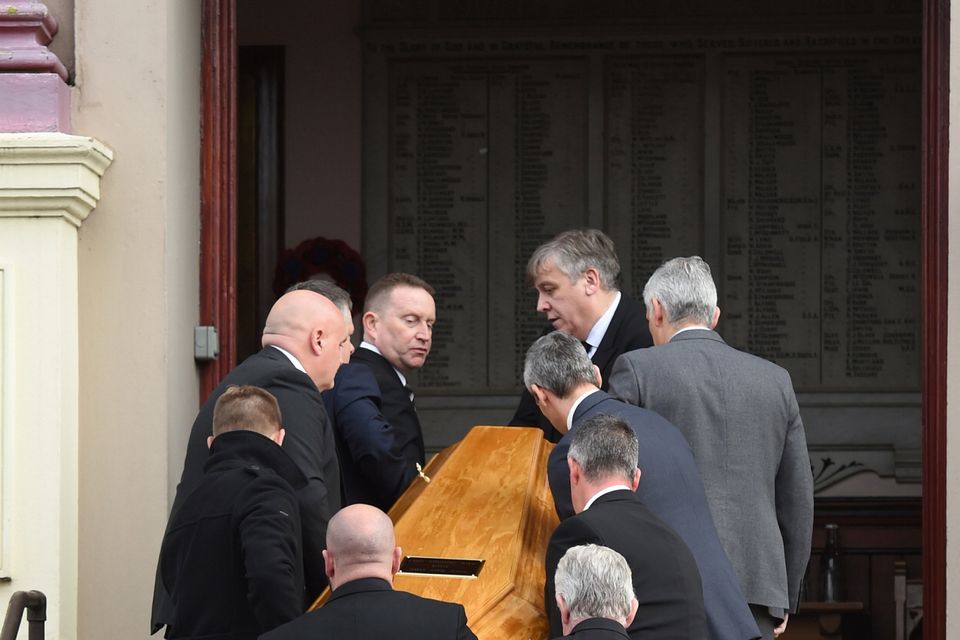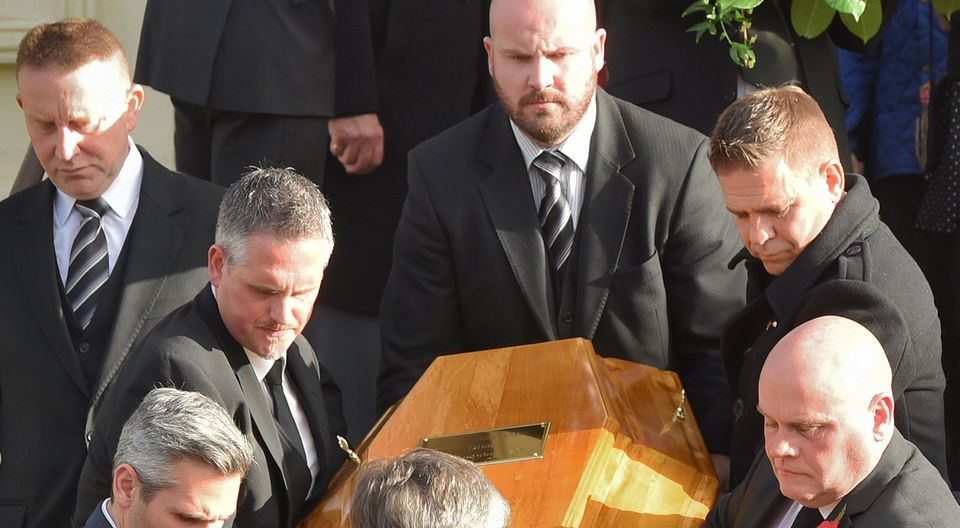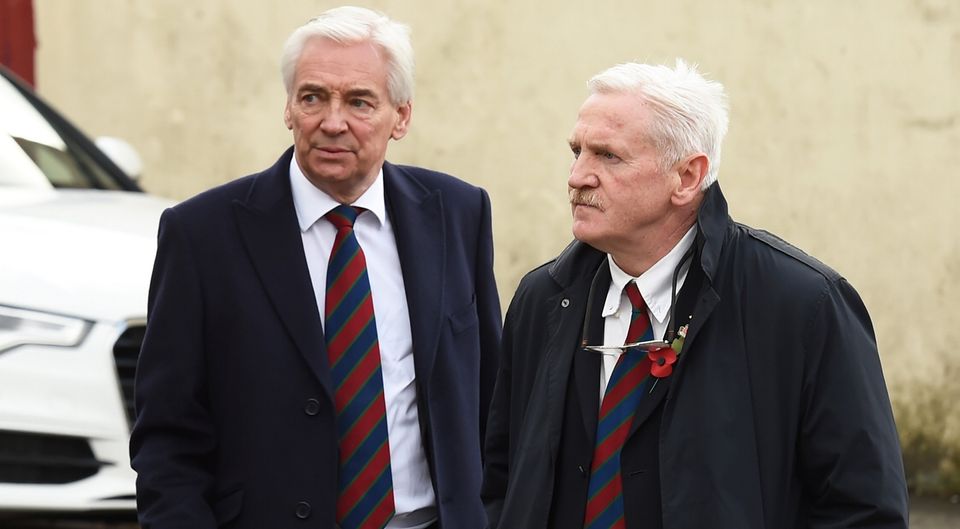Glenn Barr mourners told 'desire to help working-class' drove him into politics
Funeral of Glen Barr Derry no1-27/10/2017-Trevor McBride picture© funeral of Glen Barr,former UDA loyalist leader chief executive of the International School for Peace Studies,funeral service at Ebrington Presbyterian Church in Derry(Friday)
A former UDA leader turned community worker "leaves a legacy" that should inspire others, mourners heard yesterday.
Glen Barr's remarkable journey in life was recognised at his funeral in Londonderry, where the congregation included people from across the political divide.
Among those at Ebrington Presbyterian Church were Denis Bradley and Paddy Harte Jnr, whose father - a former Irish Government minister - worked closely with Mr Barr to raise awareness of Irish Catholic participation in both World Wars.
Also present were representatives from the Republic's Department of Foreign Affairs and former International Fund for Ireland chair William McCarter.
Mr Barr (75), a father of four, died at Altnagelvin Hospital in his native Londonderry on Tuesday.
A leading figure within loyalism during the Seventies, he played a central role in the Ulster Workers' Council strike that paralysed Northern Ireland and brought down the first attempt at power-sharing.
Mourners heard Mr Barr was a family man devoted to his wife Isa, sons and daughter and grandchildren.
Rev Paul Linkens told the congregation how Mr Barr's working-class roots led him into the political arena after he gave up his life in the Merchant Navy to work at Coolkeeragh Power station in 1964.
He said: "He (Mr Barr) got involved in the plant's trade union association and later was appointed as president of the Amalgamated Engineering Union of Londonderry.
"It was that desire to help and represent the working-class that motivated Glen into the political realm. He saw the working-class unionist voice being ignored and sought with his energy and determination to address the inequality.
The funeral of Glen Barr at Ebrington Presbyterian Church
"As a trusted voice he was elected to serve in the Northern Assembly in 1973 and the subsequent Northern Ireland Convention of 1976."
Rev Linkens also recalled how, in later years, Mr Barr gained recognition for his cross-community efforts, particularly in establishing the Irish Peace Centre at Messines, Belgium. He continued: "In many ways Glen set about trying to bring two distinct people together.
"The Maydown Ebrington Group which was established in 1981 sought to train unemployed young adults from the surrounding area together regardless of religious or political background.
Paul Clarke arrives at Glen Barr's funeral in Londonderry.
"Of particular importance was the development of the peace initiatives that stemmed from the effort to remember with and memorialise the 50,000 people from the North and South of the island that died during the First World War.
"When Glen first visited Flanders along with former TD Paddy Harte, they were both shocked and saddened by the lack of recognition given to the soldiers of the Irish and Ulste r Divisions who fell during the conflict."
Rev Linkens recalled how they sought to have a memorial constructed which would honour those who died. It resulted in the Irish Peace Park in Messines.
This work, he said, would be Mr Barr's lasting legacy.
He continued: "Glen played his part in working for that aim and he leaves a legacy that should inspire others. Glen did what he did because he believed it was the right thing to do."
Mr Barr was laid to rest at Altnagelvin Cemetery.
Join the Belfast Telegraph WhatsApp channel
Stay up to date with some of Northern Ireland's biggest stories



